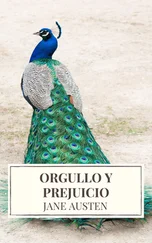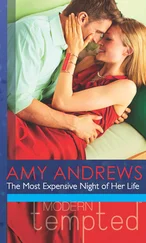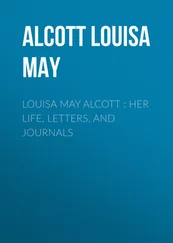1 ...7 8 9 11 12 13 ...24 The Steventon theatricals took place between 1782 and 1790, coinciding with the period in which Jane Austen’s juvenile literary works were written. Given the abundance of dramatic entertainment that she was exposed to at this time, it is not at all surprising that there were attempts at playwriting among her youthful literary efforts. Contrary to popular belief, however, it was not only in her childhood at Steventon that Austen developed her interest in the drama. In the period between the composition of the early versions of Northanger Abbey , Pride and Prejudice and Sense and Sensibility and the completion of the mature novels, Austen was taking part in private theatricals, writing dramatic dialogues and turning her favourite novel into a five-act comedy.
Jane Austen took part in private theatricals in 1805 when she was thirty. The death of her father early in the same year had a profound effect on the lives of the three dependent women whom he left behind, who were not to find a permanent home until they settled at Chawton in 1809. Some time after her father’s death Austen may have redrafted and put the finishing touches to a short epistolary novel, Lady Susan . In June, the Austen sisters left Gay Street in Bath, collecting their niece Anna on the way, and set out for her brother Edward (Austen) Knight’s Godmersham home. During her time at Kent, Jane spent many hours amusing her favourite nieces, Fanny and Anna, with play-acting. It was here that Anne Sharp, the children’s governess, formed a friendship with Jane Austen that was to last for the rest of the latter’s life. In the Godmersham private theatricals, Miss Sharp played the male roles and was clearly a great success.
The unpublished diaries of one of those nieces, Fanny Knight, reveal that aunt Jane had no scruples about play-acting. Fanny records a game of ‘school’ in which her aunts, grandmother and governess dressed up and took part:
Wednesday 26 June. We had a whole holiday. Aunts and Grandmama played at school with us. Aunt C was Mrs Teachum the Governess Aunt Jane, Miss Popham the teacher Aunt Harriet, Sally the Housemaid, Miss Sharpe the Dancing Master the Apothecary and the Serjeant, Grandmama Betty Jones the pie woman and Mama the bathing woman. They dressed in Character and we had a most delightful day. – After dessert we acted a play called Virtue Rewarded . Anna was the Duchess St Albans, I was the Fairy Serena and Fanny Cage a shepherdess ‘Mona’. We had a bowl of Syllabub in the evening. 70
Although improvisational play was part of the fun, the small company of women also included their own plays in their repertoire. Virtue Rewarded may well have been composed by Anne Sharp, with roles written specifically for the children. 71
The theatricals continued throughout June and July. Then on 30 July Fanny recorded two more amateur performances, including a play possibly written by Anne Sharp called Pride Punished: or Innocence Rewarded : 72‘Aunt C and J, Anna, Edward, George, Henry, William and myself acted The Spoilt Child and Innocence Rewarded , afterwards we danced and had a most delightful evening.’ 73Bickerstaffe’s The Spoilt Child was a great favourite on the London stage, popularised by Mrs Jordan who played the cross-dressed role of ‘Little Pickle’, the naughty child of the title. If Fanny played the part of Little Pickle and Anne Sharp his father, it is plausible that Jane Austen took the role of the spinster aunt, Miss Pickle. The most popular scene in the play is when the naughty child catches his aunt and her lover in the garden reciting love poetry and planning their elopement, and sews their clothes together.
It was during the 1805 Kent visit that Jane Austen read Thomas Gisborne’s dour Enquiry into the Duties of the Female Sex . She would have been amused to discover Gisborne’s assertion that play-acting was injurious to the female sex through encouraging vanity and destroying diffidence ‘by the unrestrained familiarity with persons of the other sex, which inevitably results from being joined with them in the drama’. 74Jane wrote to Cassandra, ‘I am glad that you recommended Gisborne for having begun, I am pleased with it, and I had quite determined not to read it’ ( Letters , p. 112). This remark suggests a softening of her prior scepticism towards Gisborne, yet she clearly had no intention of putting his prescriptions into practice and giving up her involvement with private theatricals. 75Jane Austen not only acted in plays at the same time that she was reading Gisborne, she also committed the grave offence of luring children into this dangerous activity, a practice that Gisborne particularly abhorred:
Most of these remarks fully apply to the practice of causing children to act plays, or parts of plays; a practice of which parents, while labouring to vindicate it, sometimes pronounce an emphatical condemnation, by avowing a future purpose of abandoning it so soon as their children shall be far advanced in youth. 76
Gisborne’s prejudice directly opposes Arnaud Berquin’s championing of the moral efficacy of family theatricals. Austen appears to have been more sympathetic to Berquin’s view, judging by her enthusiasm for private theatricals among Edward Knight’s young family at Kent. Perhaps she was rekindling memories of happier days at Steventon in her present uncertain state of home (she was to live at yet another brother’s home in Southampton before eventually settling at Chawton).
In the meantime she continued not only to act with the children, but also returned to drama writing. It may well have been at this time that, with the help of her niece Anna, she put the finishing touches to her five-act play, Sir Charles Grandison: or The Happy Man , a burlesque dramatisation of her favourite novel, Richardson’s The History of Sir Charles Grandison . 77
There are two more notable occurrences that reflect Austen’s interest in the drama. There still exists in the Austen-Leigh family collection a short unidentified document, untitled and consisting of two dramatic dialogues on the business of child-rearing in the early nineteenth century. From 1806 to 1809 Mrs Austen, her two daughters and Martha Lloyd were living in Southampton, for part of the time with Frank Austen and his newly pregnant wife Mary Gibson. As was the convention, the women read novels and plays aloud. This provided Jane Austen with another opportunity for the composition of amusing playlets on the subject of baby-care and motherhood. 78
In these dramatic dialogues, a first-time mother, Mrs Denbigh, is seen neglecting her child, and spending almost all of her time in the garden looking at her auriculas. She pleads ignorance in child-rearing as ‘I was just come from school when I was married, where you know we learnt nothing in the way of medicine or nursing’. The incompetence of Mrs Denbigh (and her Irish nanny) is contrasted with the sensible advice and practical skills of her friend Mrs Enfield:
MRS ENFIELD: [ Endeavours to look at the back ] Ah Nurse his shirt sticks! Do bring me some warm water & a rag.
MRS DENBIGH: [ rising ] I shall faint if I stay.
MRS ENFIELD: I beg you will stay till we can see what can be done.
MRS DENBIGH: [ takes out her smelling bottle ] I will try – how unfeeling [ aside ].
MRS ENFIELD: [ applies a mild plaister ] Now nurse you must change the plaister night & morning, spread it very thin, & keep a few folds of soft linen over it – Will you bring me a clean shirt.
NURSE: [ going out ] Yes Ma’am, if I can find one – I wish she and her plaister were far enough [ aside ]. 79
The dialogues are didactic, as they are meant to be, but the selfish Mrs Denbigh is comically drawn. Her rattling conversations perhaps foreshadow the monologues of Miss Bates and Mrs Elton in Emma . 80
Читать дальше












